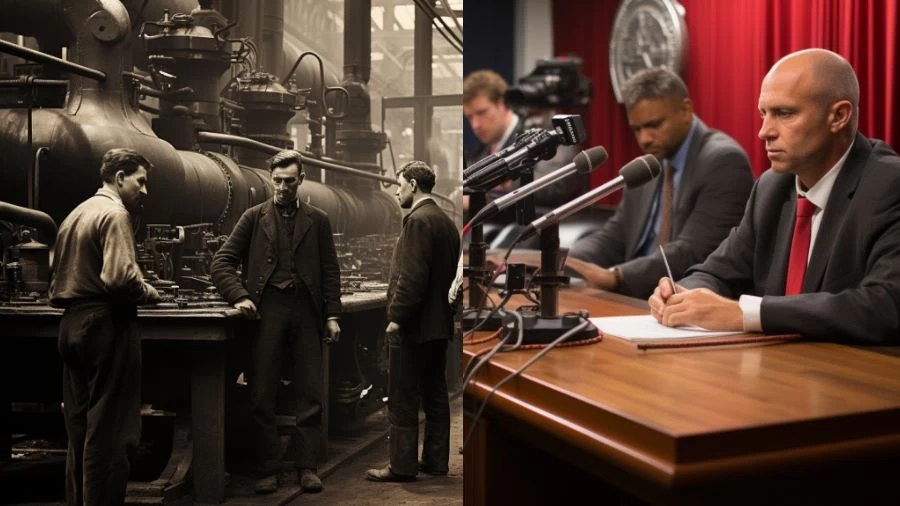
How Will the U.S. Department of Labor Impact Retirement Savings with New Rules?
The U.S. Department of Labor's new rules aim to enhance protections for retirement savers by improving standards for rollover advice, aligning recommendations with investors best interests, and potentially reducing conflicts of interest and higher fees.
Published Oct 09, 2023 | Updated Oct 09, 2023 | 📖 3 min read
How Will the U.S. Department of Labor Impact Retirement Savings with New Rules?
The U.S. Labor Department is gearing up to unveil a new rule that could have a significant impact on how retirement savers receive advice when transferring funds from 401(k) plans to individual retirement accounts (IRAs). This anticipated rule aims to enhance protections for investors during this crucial financial move. Notably, this effort comes in the wake of a similar regulation proposed during the Obama administration, which faced legal challenges and was ultimately derailed.
One must understand the context of why this rule is significant. Millions of Americans opt to transfer their retirement nest eggs from workplace-based 401(k) plans to IRAs each year. This is a common financial decision, often made when individuals change jobs or retire. It's a pivotal moment in an individual's financial journey, and the choices made during this transition can significantly impact their financial future.
What is the Impact of Higher Fees?
One drawback associated with rolling over funds into IRAs is the potential for higher fees compared to 401(k) plans. These fees can add up over time, potentially eroding a substantial portion of an individual's savings.
For instance, research from Pew Research Center has indicated that investors who moved their money to IRAs in 2018 could collectively lose around $45.5 billion to fees over a span of 25 years. This underscores the importance of ensuring that investors receive sound advice during this critical financial move.
What are the Labor Department's Expected Changes?
The upcoming rule from the Labor Department is expected to address these concerns by tightening regulations surrounding rollover advice. One of the primary focuses of the rule is to ensure that investors receive advice that is aligned with their best interests. In essence, it seeks to establish a fiduciary standard for rollover recommendations. This means that financial professionals providing advice must prioritize the investor's best interests over their own financial gains, eliminating potential conflicts of interest.
Immerse yourself in the wealth of financial knowledge waiting to be discovered at MarketsHost, where you can access a multitude of resources covering every aspect of Finance.
What Could the Labor Department's Rule Mean for Your Retirement?
The Labor Department's impending rule holds the potential to reshape the landscape of retirement planning. By addressing concerns related to rollover advice and investor protections, this rule could significantly impact the financial security and choices available to individuals as they prepare for retirement.
- The Labor Department's rule aims to improve protections and standards for retirement savers.
- It could enhance the quality of rollover advice by aligning recommendations with investors' best interests.
- This may lead to more thoughtful rollovers and potentially reduce conflicts of interest and high fees.
- However, there may be opposition and legal challenges to the rule.
- The full impact of the rule may take several years to become effective.
- Overall, the rule seeks to create a more secure and beneficial environment for retirement planning.
How Will the U.S. Department of Labor Impact Retirement Savings with New Rules - FAQs
1. What is the U.S. Department of Labor's new rule about?
The U.S. Department of Labor is preparing to introduce a new rule aimed at enhancing protections for retirement savers during the process of transferring funds from 401(k) plans to individual retirement accounts (IRAs).
2. Why is this rule important?
This rule is essential because millions of Americans move their retirement savings from workplace-based 401(k) plans to IRAs, and the choices made during this transition can significantly impact their financial future.
3. How might this rule impact retirement savers?
The rule is expected to raise the standards for rollover advice, ensuring that investors receive recommendations aligned with their best interests, potentially reducing conflicts of interest and protecting savers from higher fees.
4. What are the potential criticisms of the rule?
Critics argue that the rule could lead to confusion and increased compliance costs. However, proponents emphasize the benefits of safeguarding investors and minimizing conflicts of interest.
5. When will the new rule take effect?
It may take two years or more for the new rule to become fully effective, as regulatory changes typically involve a lengthy process and potential legal challenges.




